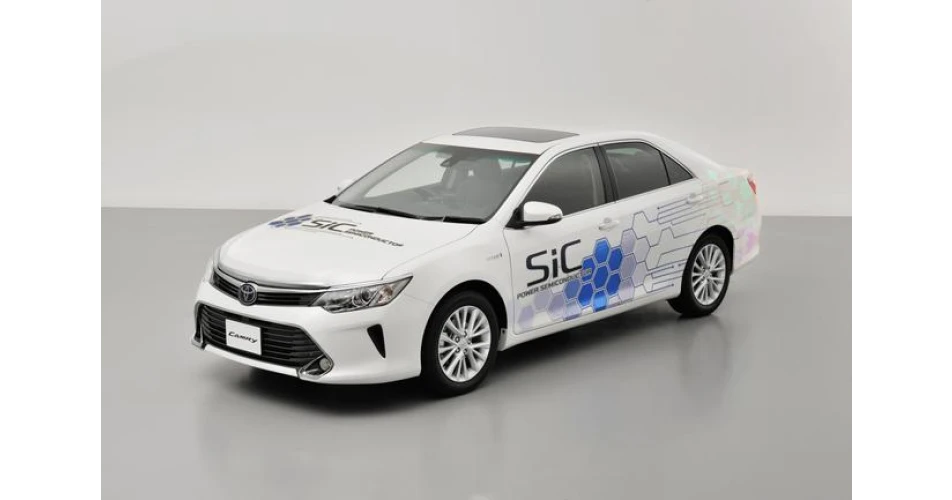Using a Camry hybrid prototype and a fuel cell bus, Toyota Motor Corporation will bring a brand new technology to the streets of Japan for testing this year. The tests will evaluate the performance of silicon carbide (SiC) power semiconductors, which could lead to significant efficiency improvements in hybrids and other vehicles with electric powertrains.
Power semiconductors are found in power control units (PCUs), which are used to control motor drive power in hybrids and other vehicles with electric powertrains. PCUs play a crucial role in the use of electricity, supplying battery power to the motors during operation and recharging the battery using energy recovered during deceleration.
At present, power semiconductors account for approximately 20 percent of a vehicle's total electrical losses, meaning that raising the efficiency of the power semiconductors is a promising way to increase powertrain efficiency.
By comparison with existing silicon power semiconductors, the newly developed high quality silicon carbide (SiC) power semiconductors create less resistance when electricity flows through them. The technologies behind these SiC power semiconductors were developed jointly by Toyota, Denso Corporation, and Toyota Central R&D Labs., Inc. as part of the results of a broader R&D project in Japan.
